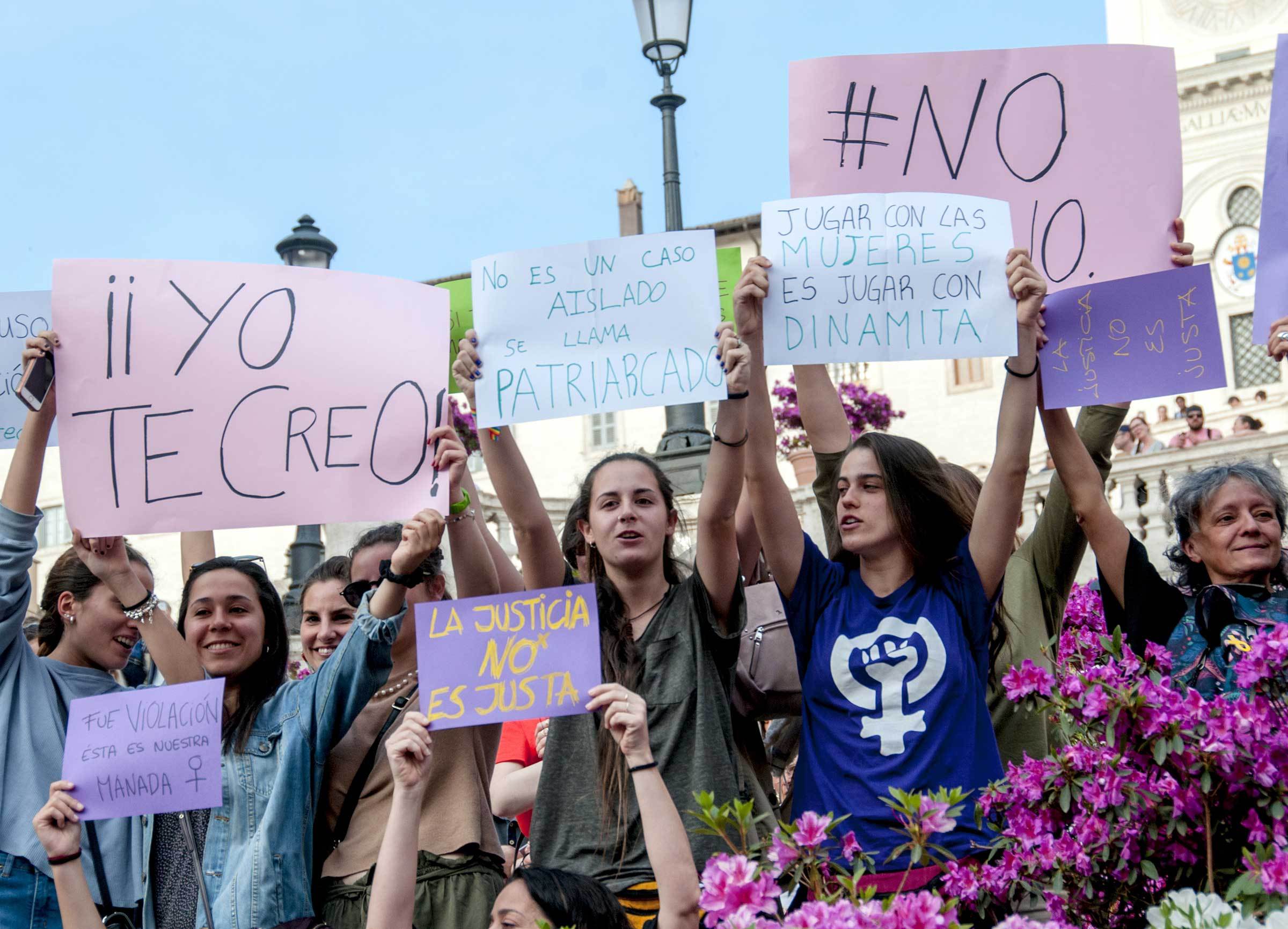‘La Manada’: Spain’s challenge to believe survivors of rape

In July of 2016, at the Sanfermines festival in Pamplona, Spain, an 18-year-old woman alleges she was gang-raped by five men. Three of the men she accused had criminal records, including one man who is enlisted in the Spanish military. Another man accused is a member of the national police force. This group of men have come to be known as “la manada,” or “the wolf pack,” since that was the name of the WhatsApp group through which they allegedly plotted to gang-rape a woman at the festival.
On April 26, 2018, the provincial court of Navarra, Spain, ruled that these five men had not raped the woman, but sexually abused her. Under Spanish law, sexual abuse is a crime that does not use intimidation or violence, and therefore warrants a lesser sentence than does rape. Even though the “wolf pack” filmed the interaction, and took the victim’s phone before they left, each perpetrator received only a nine-year sentence.
The judges’ choice to opt for a lesser sentence is an unsurprising one in Spain. A culture of victim-blaming is normalized in this country. For example, in 2016, a Spanish judge, Judge Maria del Carmen Molina Mansilla, asked a rape victim if she had tried “closing her legs” to prevent the attack against her.
The outcome of this trial demonstrates just high the barriers women face within the criminal justice system are. Even when five grown adult men film themselves assaulting an 18-year-old woman, judges still believe that no violence was perpetrated against her.
What’s more, this outcome teaches young girls and women that even if they go to the police, then go to court, the government will scrutinize them and not believe them. This tells boys and young men that if they were to rape a woman, they will most likely get away with it.
But plenty have spoken out in protest of this ruling.
“Five aggressors put a woman in the entrance of a building and raped her,” Irene Montero, a politician and feminist, speaker of the Spanish Unidos Podemos party, tweeted “It is evident that there is intimidation. That they acted in a pack. That there is aggression. This sentence should be of rape. While justice does not protect us, we will take care of each other. We are not alone.”
“We are concerned that the court has dismissed the crime of rape because it could be sending a worrying message: if women do not resist there is no rape,” Amnesty International Spain tweeted.
The incident also spurred responses from activists worldwide. Even the executive coordinator of UN Women, Purna Sen, stated, “The light sentencing of the ‘wolf pack’ attackers in Spain diminished the severity of the violation and undermines clear obligations to uphold the rights of women.”
Most notably, thousands of Spaniards all around the country took to the streets in protest. They have marched out of outrage and are calling for the men to be convicted of committing rape, which would result in a sentence of over 20 years.
In addition to the nationwide protests, Spanish women have shared their stories of sexual abuse on Twitter under the hashtag “#cuéntalo,” which means “say it.” This hashtag has spread to other Spanish-speaking countries, in which sexual violence against women is unfortunately common.
Survivors of rape, as well as women and men of all ages, deserve and need to continue to fight for a justice system that believes survivors. And if this case is any indication we’re up to the task.
More articles by Category: International, Violence against women
More articles by Tag: Rape, Sexualized violence, Criminal justice, Law


























